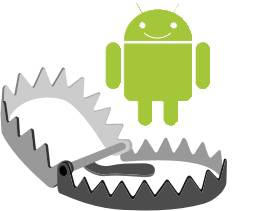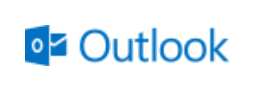| How Google Took Over My Digital Life |
| Written by Alex Armstrong |
| Friday, 14 September 2012 |
|
I'm not a conspiracy theorist but Google does seem to have a plan that seems to be working. Without really noticing it Google seems to have infiltrated my digital life, including development, without me having to make a conscious decision about anything much. There have always been theories on how to dominate the digital world. Microsoft's Steve Ballmer stated that it is the developer who rules - get the developer on board and the users follow. This might be true, but before this Microsoft's master plan was "Windows Everywhere" - the idea being that you could rule the digital universe if your operating system was on every desktop. Over the years this has proved to be more-or-less true, but the web and more recently mobile devices have proved that mastery of the desktop environment isn't everything. Google takes a very different view of the world. It espouses the idea that data is everything. If you have your hands on the massive raw data that is sloshing about the web then you can turn it to profit. Google's plan is that the master of the data, in all its forms, is the master of the digital world. This may be Google's obvious plan but there is a small twist that makes it all the more likely that it will succeed in being the master of everything. I have a story to share with you. Over the years I have tried not to get tied into any particular infrastructure unless I could see an exit strategy. As time has ticked on this approach has had to be compromised as companies introduce increasingly tight restrictions on who can use their software and services. The idea may be open access and open source, but the reality is that you have to go with the leading technology and try to minimize the impact of the restrictions and the effects that they might have on the future of what you create and use.
One aspect of this approach is that I won't work with iOS devices - no matter how good they are. They are over-controlled by Apple and represent a closed world. Of course, if there were no Android then I would be forced to use iOS. While there are situations in which I would reluctantly use iOS, I work with the principle that if possible choose the least evil option. So I write Android apps and when I wanted a tablet I bought a cheap Android, then a more expensive Android, then another cheap one and recently a Nexus 7. Each time the system offered to set up Gmail, Google+ and so on but I resisted. Recently, I decided that the way I used email was silly - Thunderbird was doing a good job of managing my email accounts but I couldn't log on to it remotely. So I decided to move my email "to the cloud" as the PR speak has it. But which provider? I'd used Hotmail, Gmail and a few others but I decided that a free Gmail would be good enough for the job as it handles up to five POP accounts as well as the basic Gmail address. The decision was also influenced by the fact that Gmail was supported on my current Android tablet. Yes, I could have downloaded and installed a Hotmail or Outlook.com app, but why bother when Gmail is pre-installed. So now I look to Google for my email and I started to use the Calendar application in Google Docs as a result. Next I find I'm taking notes using Google Docs and planning to write some extras I need using App Script. Given my documents and App Scripts are all stored on Google Drive, guess which "cloud" storage service I'm using and taking up more and more space on. I was already reading news via the Google Reader and so most of my online, desktop and tablet time is spent engaging with Google services. So Microsoft, my programming partner for many years, is being squeezed out. Given I spend so much time working with Android, I even find it possible to think that Android on my desktop might not be so silly. If in the future Chrome or something similar becomes an option, I might just consider it whereas previously I would have laughed. You need to notice that this isn't an "in praise of Google" article, there is much wrong in this ecosystem just like the others. What I am trying to explain is that all this came about without me making big choices. I didn't notice that I was moving my digital life to Google services. I'm not unhappy with the situation - it all seems to work OK - but I am disturbed that it all happened without me noticing. At the moment Google isn't getting much out of capturing my digital life in any direct way. It currently shows me a few adverts and perhaps gets some pleasure from tracking my use of the web, but this can't amount to much of a revenue, if any, in return the services it is providing. At some point in the near future I may have to switch to a paid Google Docs account and buy more storage on Google Drive, and when this happens the change will be complete. Could the same thing have happened with Apple, Microsoft or even Amazon? I don't think so.
In Apple's case the nature of the deal is so obvious that you can avoid signing up, or at the very least contemplate what you are about to do and make a "big decision". With Google you can sign up for Gmail, then notice that you have Drive, Docs and so on. With Apple you sign up to iCloud and you are clearly getting the whole package. It's a small difference, one of emphasis' but in this case gradual seems to work better. Both Microsoft and Amazon have good services but they just don't cover the ground. In the future Microsoft might have a phone and a tablet that is tied in with its services, but at the moment Windows Phone 7 is dead and we are still waiting to see what Windows Phone 8 and Windows 8 are all about. Currently Microsoft might have the online services but it doesn't have the hardware to push them from the desktop to the mobile.
Amazon on the other hand has the tablet, another Android, but doesn't have the services. You can buy lots of nice stuff from Amazon, but where is the email, Amazon Docs and storage? It has the amazing Amazon Web Services, but this is for systems builders and developers not the business or home user. In short Amazon doesn't offer a complete package.
So basically it is only Google that has the hardware, the services and the traps set to catch the casual user and reel them in. Once you have swallowed a small part of the bait, it just seems easier to carry on eating rather than shop around and find an alternative that probably doesn't integrate anyway. Clever stuff. The only question is - is this intentional, is this a master plan? It is a good thing I don't believe in conspiracy theories. Just waiting for my Google driverless car to pick me up. And wait, something just came in on my Google Glass - got to go and get my Google Universal translator fitted ... More InformationRelated ArticlesGoogle Not Interested in Screwing Over Developers Getting Started With Google App Script
To be informed about new articles on I Programmer, install the I Programmer Toolbar, subscribe to the RSS feed, follow us on, Twitter, Facebook, Google+ or Linkedin, or sign up for our weekly newsletter.
Comments
or email your comment to: comments@i-programmer.info
|
| Last Updated ( Wednesday, 26 September 2018 ) |




